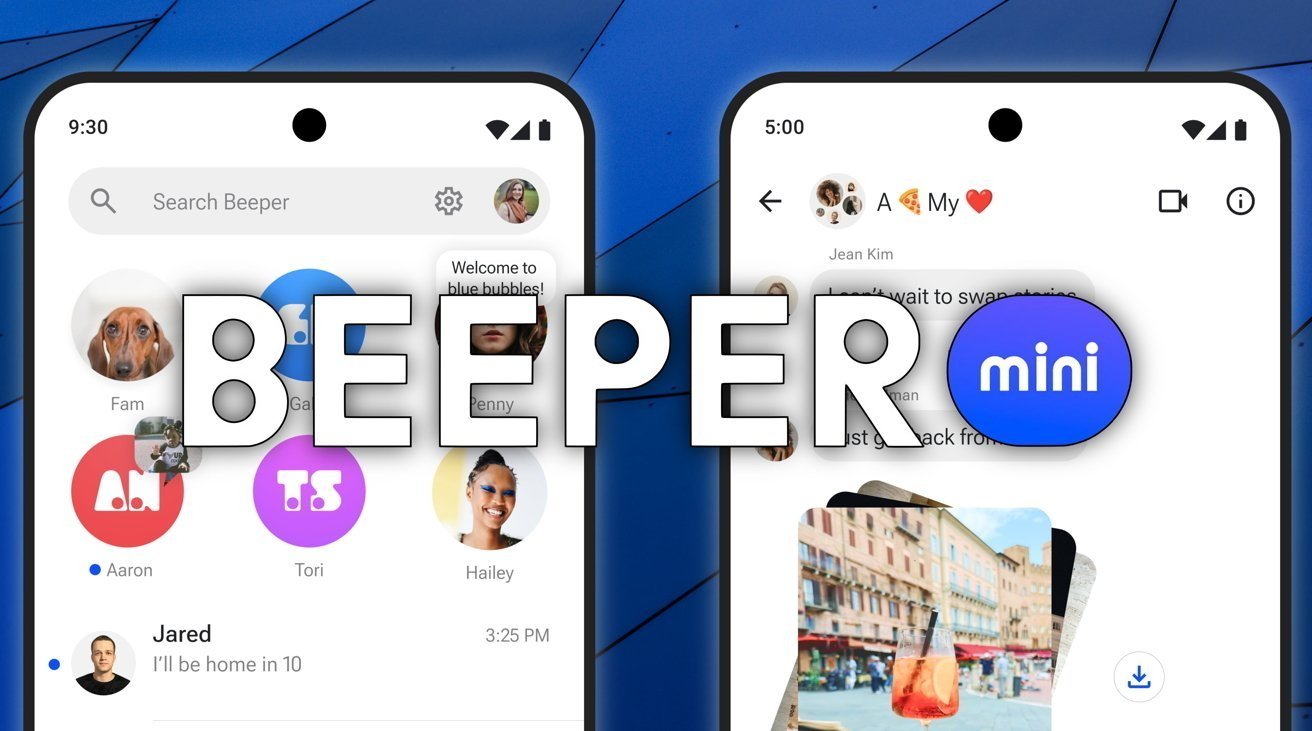Not dead yet: Beeper Mini's new fix requires Mac access
Beeper Mini will be functional with iMessage support once again on December 20, its developers claim, with a "very reliable" fix for the messaging app on the way involving a user's Mac.

The continuing battle between Beeper's work to get Beeper Mini and Beeper Cloud working with iMessage and Apple's attempts to keep it off are continuing into the holidays. The cat-and-mouse situation is set to continue, with Beeper coming up with a new fix to get its messaging apps working again with the network.
In a post to Reddit on Tuesday, Beeper claims it has found a way to "stabilize the iMessage situation" for both Beeper Cloud and Mini. One that supposedly "works well" and "is very reliable" in testing.
The problem, Beeper explains, is that registration data has to be acquired from a real Mac to connect Beeper's apps to iMessage. So far, the app has relied on its own collection of Mac servers to handle the registration, but this has been an "easy target for Apple" since thousands of Beeper users were using the same registration data.
This registration data was used to indicate that a Mac was available during registration, Beeper assures, with the Mac not given access to user accounts nor messages.
In Wednesday's update, Beeper Cloud for Mac will generate a unique set of registration data just for that user. Since it's a one-to-one mapping of registration data to an individual user, this helps keep the connection reliable.
If that same user also runs Beeper Mini on an Android device, the Mac registration data can be used with it, enabling access. Beeper apparently does need to regenerate the data "roughly once per week or month" after connection to iMessage, so the linked Mac will still need to be used periodically.
For users who don't have access to a Mac, but they have a friend who uses Beeper and has a Mac, it is possible for multiple apps to share the registration data. Beeper claims that, in testing, up to 20 users can "safely" use the same registration data.
Beeper is also open-sourcing its full iMessage bridge and the code for generating registration data on the Mac. This is both to allow interested parties to inspect code or for users to self-host.
This fix is the latest in a series of attempts to keep Beeper Mini and Beeper Cloud working for users, ever since Apple started working to block access of the app.
While Apple takes the stance of "blocking techniques that exploit fake credentials" for access to its network due to "significant risks to user security and privacy," Beeper has received support from an unlikely source. U.S. senators have jumped on the situation, calling out Apple for supposed anticompetitive behavior.
Read on AppleInsider

Comments